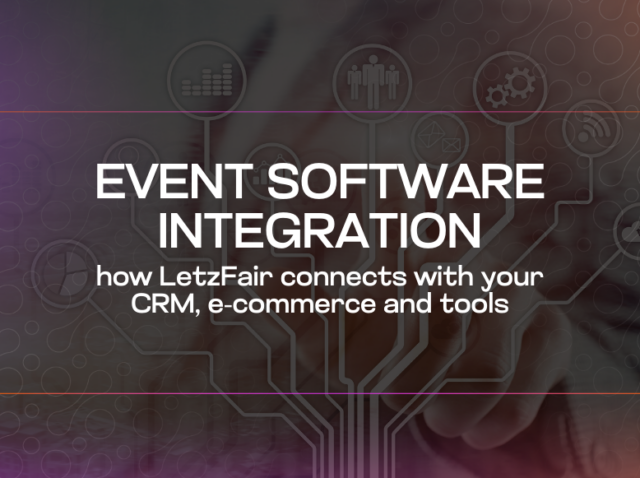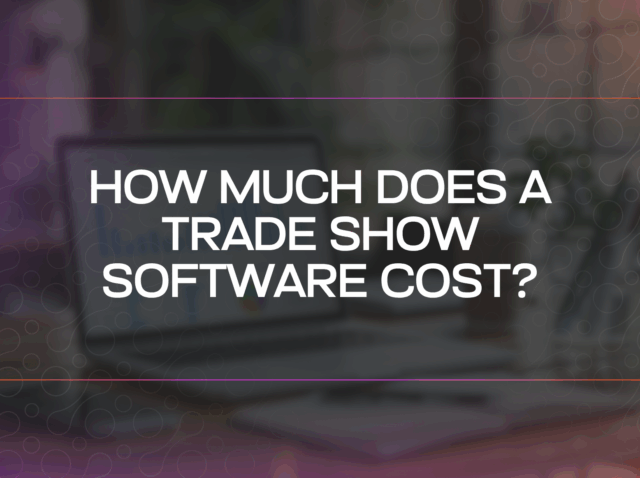A marketing plan is one of the most valuable tools a company can use to define and organize the actions needed to achieve its business goals.
Among the most effective strategies to strengthen a company’s network and reach its target audience are corporate and trade events. These occasions bring together professionals from the same industry, creating opportunities to share insights, discover new market trends, and foster meaningful connections.
Trade fairs, in particular, are key opportunities for companies looking to increase visibility, build brand awareness, and generate high-quality leads. However, success depends on having a well-structured marketing plan, focused on both pre-event preparation and post-event follow-up.
Although the pandemic disrupted the event industry, many of the strategies developed during that period — such as hybrid formats — have become permanent fixtures. Data confirms that most companies now favor a balanced integration between in-person and digital participation.
If you’re building your next marketing plan, here are five essential steps to make your event truly successful.
1. Define Clear Objectives in Your Marketing Plan
For a company to achieve its goals, it’s crucial to define realistic, measurable, and achievable marketing objectives.
Starting without a clear target often leads to wasted time, money, and effort.
Every company joins trade events for different reasons — meeting suppliers, connecting with new clients, strengthening existing relationships, or launching new products.
All of these purposes should be turned into specific objectives that shape the overall marketing plan. This ensures every action contributes to measurable business outcomes.
2. Choose the Right Event for Your Goals
Selecting the right event is key to a successful marketing strategy.
Companies typically choose events related to their industry, but sometimes they participate in broader fairs to expand their network, increase visibility, or explore new markets.
Understanding your target audience is essential when choosing events. Analyze who your ideal customers are, what interests them, and which event formats best align with their needs.
Tailoring your participation strategy to your audience increases both engagement and return on investment.
3. Set a Roadmap for Your Marketing Plan
No event should be organized without a clear timeline and structured marketing plan.
Defining a roadmap helps companies allocate budget efficiently, prioritize resources, and stay on schedule.
For large-scale events, planning should start months in advance. This includes promoting the event across all corporate channels to build awareness and excitement.
Be mindful of timing — announcing too early may cause audiences to forget, while promoting too late might limit exposure and reduce registration opportunities.
A well-defined roadmap ensures every step, from planning to post-event analysis, is aligned with your business objectives.
4. Create Engaging and Emotional Content
Simply being present on social media is not enough — your content must engage and resonate with your audience.
Using modern marketing automation tools, you can schedule personalized messages and campaigns, such as targeted email sequences announcing upcoming events or exclusive previews.
Combining automation with a content marketing strategy allows you to produce customized materials that build awareness, attract attention, and keep your brand top of mind.
Consistent, valuable content strengthens your event’s impact and encourages ongoing interaction with your audience.
5. Take Care of Your Visitors
During the event, providing reliable and attentive support is crucial.
Address participant needs promptly and ensure smooth communication throughout the event.
Once the event ends, follow up with your attendees. Send thank-you emails, collect feedback through surveys, and invite them to subscribe to your newsletter to stay updated on future events.
Maintaining contact with participants helps reinforce your brand identity, foster loyalty, and keep your company top of mind.
In marketing terms, building long-term relationships is one of the most powerful ways to enhance customer retention and brand authority.
Conclusion
The strategies outlined above can help any company refine its event organization and marketing capabilities.
When supported by accurate data, a marketing plan enables businesses to make smarter, data-driven decisions — avoiding wasted investments and focusing on high-return actions.
Those who adopt a data-driven marketing approach will ultimately benefit from stronger brand positioning, greater efficiency, and long-term success.









